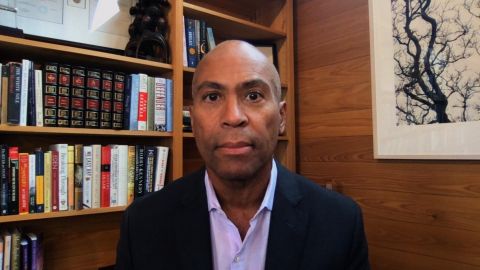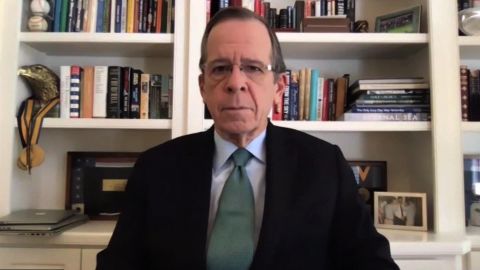Read Transcript EXPAND
CHRISTIANE AMANPOUR: What you have written about is prolonged protest. Tell me how that fits in what we’re seeing now on the streets and how protest can shape politics as we go forward in this moment.
MARY FRANCES BERRY, FORMER CHAIR, U.S. COMMISSION ON CIVIL RIGHTS: Well, what I’ve discovered and acted on and written about is that protest has to be persistent. What I worry about at this moment — and most of the campaigns that I’ve been involved in and written about took a time to bear fruit. What I worry about at this moment is that once the mourning for the particular, Mr. Floyd, takes — is over, and at some point it will be, and depending on what course the virus takes and depending on what the imperatives of electoral politics are and campaigning and all that sort of thing, how long will the protests last? There has been an inclination on the part of officials to — once they pass some police reform measures, which will probably be insufficient in my view, they will go on to something else and say that, if you want more done, then go out and vote and, you know, campaign and all that. Voting is important. But you must have protests. It’s an essential ingredient of politics and it must be a longer duration than a week or two weeks or a month. And the virus may not permit it, depending on whether it gets out of hand again.
AMANPOUR: So, let me ask you about that, because clearly, I think everybody understands that if it wasn’t for the protest, this reaction across the United States, across the world probably wouldn’t have unfolded either.
BERRY: Right.
AMANPOUR: And that you see right now, whether it’s some Republicans, certainly the Democrats in Congress, you see across states where its elected leaders in, you know, cities and towns across America who are saying the right thing, a lot of them, and wanting to push the ball forward. What — how do you get the message and who do you need to get the message to to keep up that pressure?
BERRY: Well, I think the Black Lives Matter people who have been talking in public have said that they understand the need to do that. You see, every time we’ve had a disturbance after some black person has been killed or something happened or what, racial unrest and disturbance, we’ve had a report. And the report, whether it was current commission or other kinds of reports after Martin Luther King was assassinated and so on, usually tells us the things we need to do. One is to reform the police, which we’re talking about right now, because this whole thing was so graphic and so stark. And the other is that we should pass programs, social programs, for poor people and do something about inequality in the country.
About This Episode EXPAND
Veteran civil rights activist Mary Frances Berry joins Christiane Amanpour to discuss the work that lies ahead for the Black Lives Matter movement. Deval Patrick, former governor of Massachusetts, discusses the 2020 election, police reform and racism in the U.S. Admiral Mike Mullen joins Walter Isaacson to discuss his op-ed for The Atlantic entitled “I Cannot Remain Silent.”
LEARN MORE


